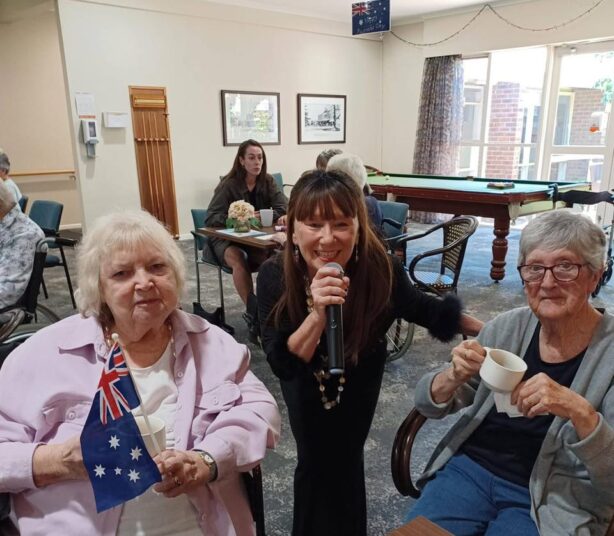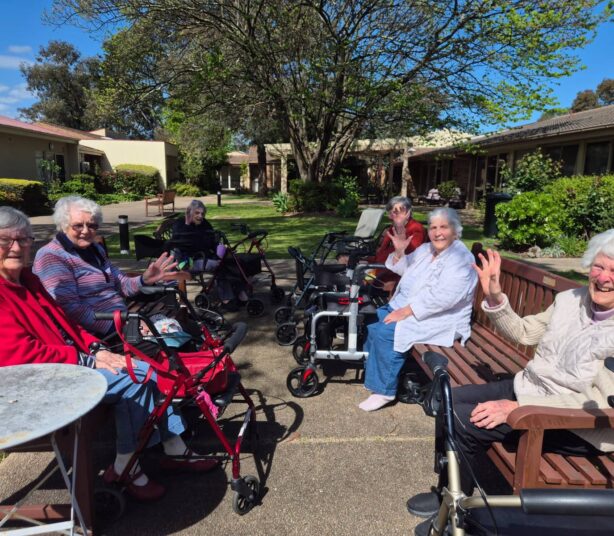Palliative Care Australia visits Cumberland View Village
Planning for future healthcare decisions is one of the most important steps Australians can take to ensure their wishes are respected when they may no longer be able to communicate them. At Cumberland View Retirement Village, today we hosted an enlightening Advance Care Planning presentation delivered by Palliative Care Australia, drawing an excellent turnout of engaged community members eager to learn about protecting their interests and planning for the future.
What is Advance Care Planning?
Advance care planning is a process to help you plan your medical care in advance. It is important because some time in the future you may become too unwell to make decisions for yourself. As Palliative Care Australia emphasises, this comprehensive process goes far beyond simply completing paperwork—it all starts with conversations.
It all starts with a conversation with loved ones and those you trust. The organisation notes that while almost 90% of Australians believe it is important to talk about their wishes and preferences for care, despite this, most Australians (56%) have not undertaken any action to talk about or record their end of life wishes.
An Advance Care Directive is the formal legal document that captures your preferences, whilst an Advance Care Plan may contain broader information about your values and goals for care.
Key Components of an Advance Care Plan
During the presentation, attendees learned that according to Palliative Care Australia, an advance care plan usually includes the following parts:
Contact Details for Decision-Makers
A list of the names and contact details of who can speak on your behalf with your doctors, if you are unable to. This person is sometimes called your ‘substitute decision maker’ and is often appointed through an Enduring Power of Attorney.
Care Outcomes and Values
A description of the care outcomes that would, and would not be acceptable to you. This goes beyond specific treatments to encompass your values and what constitutes meaningful care.
Treatment Preferences
A description of any treatments or services that you do or do not want. Don’t just think about whether you want to be resuscitated if your heart stopped or you stopped breathing—also think about what outcomes would not be acceptable to you.
Personal and Environmental Preferences
Other wishes, such as wanting to die at home or in a hospital, having your family with you, or having your pet with you.
Legal Requirements
Your signature, a witness signature, and the date to ensure the document is properly executed.
The Difference Between Advance Care Directives and Wills
One common area of confusion addressed during the presentation was the distinction between Advance Care Directives and Wills. While both are important legal documents, they serve different purposes:
Advance Care Directives focus on healthcare decisions and personal care while you’re still alive but unable to make decisions
Wills primarily deal with the distribution of your assets and property after death
Both documents are essential components of comprehensive future planning, and having both ensures your wishes are protected across all circumstances.
The Importance of Conversations in Advance Care Planning
The presentation emphasised that effective advance care planning starts with open, honest conversations rather than simply completing documents. These discussions should involve:
Family Members and Close Friends: Sharing your values, concerns, and preferences with those closest to you ensures they understand your wishes and can advocate for them when needed.
Healthcare Professionals: Your GP and other medical providers can offer valuable insights about potential health scenarios and treatment options, helping you make informed decisions about your preferences.
Legal Professionals: When creating formal documents, consulting with professionals experienced in estate planning and healthcare directives ensures your documents are legally sound and properly executed.
Accessing Your Advance Care Directive When Needed
Modern technology has made it easier to ensure your advance care directive is available when healthcare decisions need to be made. In Australia, these important documents can be uploaded to your My Health Record, making them accessible to your healthcare team across different medical settings and emergency situations.
This digital accessibility is particularly valuable because medical emergencies often occur unexpectedly, and having your preferences immediately available can prevent unwanted treatments and ensure care aligns with your values.
Legal Implications and Considerations
Understanding the legal framework surrounding advance care directives is crucial for Victorian residents. These documents are legally binding when properly executed, meaning healthcare providers are required to respect your documented wishes within the bounds of professional medical standards.
However, the presentation highlighted several important considerations:
Directives must be created when you have decision-making capacity
They should be reviewed and updated regularly as your circumstances or preferences change
Specific legal requirements vary by state, making local expertise valuable
Healthcare providers retain professional obligations that may, in rare circumstances, override certain directive provisions
Benefits of Advance Care Planning
As highlighted in the presentation, if you were very sick, it may fall to your family or close friends to make decisions about your healthcare. That can be a very stressful time where family members or loved ones may not agree with approaches to your care. If they have a document where you talk about the type of care that you would want, this can help them make decisions on your behalf.
It can help you too. For example, if you were very sick, you might know that you don’t want to be kept on life support if you were not likely to recover. You might know that you want all available treatment, even if that treatment might have side effects that make you very sick. Writing down what is, and is not, acceptable for you can help doctors consider your wishes and individual preferences when planning your care.
The Three-Step Process for Advance Care Planning
Based on the Palliative Care Australia presentation, the advance care planning process involves three key steps:
Step 1: Have Conversations
Talk to your family, trusted friends and carers about what you want, and don’t want, when it comes to your future medical treatment and care. Take some time to reflect about the care that you would want. Tell your family who you have nominated for doctors to contact if someone needs to make medical decisions for you.
Palliative Care Australia provides discussion starter cards and workbooks to help facilitate these important conversations, including specific tools for Aboriginal and Torres Strait Islander and multicultural communities.
Step 2: Write Down Your Wishes
Advance care planning can be an informal process, where you write down your wishes on any form or paper. It can also be more formal, including having documents that are legally recognised.
It is acceptable to upload an advance care plan that you have written. It may not be legally binding in every state and territory, but should be respected by people making healthcare decisions for you.
To formalise your advance care plan and to appoint a legally recognised substitute decision maker, the process is a bit different in each state and territory:
Advance Care Directive: The legal document about your healthcare wishes (may have different names depending on where you live)
Enduring Power of Attorney: The legal document about who you want to make healthcare decisions for you
Step 3: Share Your Documents
You should share your advance care planning documents with the people who can be contacted should the need arise. Your My Health Record is an excellent place to save your documents online, making your treating doctors, hospitals and other healthcare providers aware that you have specific wishes about your future medical treatments.
Cumberland View’s Commitment to Resident Wellbeing
At Cumberland View Retirement Village, we understand that comprehensive planning for the future is an essential component of wellbeing. By hosting educational sessions like this Advance Care Planning presentation, we’re committed to providing our community with access to expert information and resources that empower informed decision-making.
Our partnership with organisations like Palliative Care Australia ensures community members receive current, professional guidance on these important topics. We believe that when people have the knowledge and tools they need to plan effectively for their future, they can enjoy greater peace of mind and confidence in their daily lives.
The enthusiastic participation in this presentation demonstrates the importance our community places on taking control of their future healthcare decisions. This proactive approach to advance care planning reflects the engaged, thoughtful individuals who are drawn to what Cumberland View has to offer.
For more information about upcoming educational sessions at Cumberland View Retirement Village, contact our team at (03) 9795 9166 or sales@cumberlandview.com.au. We’re committed to supporting our community’s wellbeing through access to valuable information and expert guidance.




